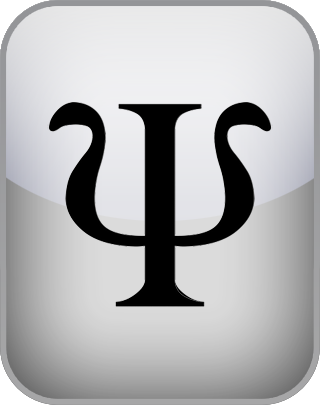Академічно перевірено доктором Дженніфер Шульц, Ph.D., доценткою психології
Тест на визначення розладу особистості
Цей тест на визначення розладу особистості на 105 питань дозволить Вам дізнатися, які негативні риси притаманні Вашій особистості. Цей тест надає більш динамічну та детальну інформацію щодо Ваших особистих якостей, ніж Тест за Юнгом чи тест Велика п’ятірка.
Під час проходження даного тесту цілком нормально відчувати, що багато з поданих аспектів характеризують Вашу особистість. Однак для отримання оптимального результату НЕ натискайте «Погоджуюсь», якщо твердження характеризує Вашу поведінку чи характер лише частково. Якщо Ви вагаєтеся, - натисніть, будь ласка, «Не погоджуюся».
Запитання 1 з 105
Інколи у мене такий настрій, що я принижую і критикую людей без жодної на те причини.
НАЗАД НАСТУПНЕ
"Тест на визначення розладу особистості" є власністю IDR Labs International, проте багато в чому завдячує роботам Феодора Міллона, Сета Гроссмана, Аарона Т. Бека, Артура Фрімана та Ненсі Максвільямс.
The Personality Style Test, based on the research of Dr. Theodore Millon, is a psychological assessment designed to identify and categorize various personality traits and styles. Millon’s pioneering work in personality theory has provided a comprehensive framework for understanding how individual personalities develop, adapt, and sometimes become maladaptive. His model emphasizes that personality is not static but exists on a continuum, with certain traits manifesting in healthier or more dysfunctional ways depending on life circumstances, coping mechanisms, and other factors.
Dr. Millon’s research is rooted in the idea that personality styles are patterns of thinking, feeling, and behaving that individuals use to interact with the world. Unlike traditional models that focus solely on pathological traits, Millon’s approach recognizes that everyone has a blend of personality characteristics that can be adaptive or problematic depending on context. His work on personality is best known for its application in understanding personality disorders, but the Personality Style Test goes beyond pathology to examine how various personality traits manifest across the population.
Millon identified several distinct personality styles, many of which align with broader categories of personality functioning. These styles are mapped along dimensions of interpersonal relationships, emotional expression, and coping strategies. For example:
Compulsive Personality Style: Characterized by a need for order, control, and perfectionism. Individuals with this style are highly disciplined, but they may also struggle with rigidity and difficulty adapting to change.
Dependent Personality Style: Marked by a deep need for approval and support from others, individuals with this style may have difficulty making decisions or functioning independently, relying heavily on close relationships for guidance.
Histrionic Personality Style: Defined by an intense need for attention and approval, people with this style often exhibit dramatic, emotional behaviors and seek validation through social interactions.
Narcissistic Personality Style: Associated with a strong sense of self-importance, individuals with this style often focus on their own needs and seek admiration, but they may struggle with empathy and close relationships.
Millon’s Personality Style Test also includes other styles, such as avoidant, schizoid, and aggressive styles, each highlighting different ways individuals interact with their environments and relationships. The test reveals which personality traits are dominant in an individual’s psychological makeup, offering insights into how these traits influence behavior, decision-making, and interpersonal relationships.
A key aspect of Millon’s work is the understanding that personality styles exist on a spectrum. While someone may exhibit traits associated with a personality disorder, they can still function adaptively if these traits are balanced and not extreme. Conversely, when these traits become rigid or exaggerated, they can lead to maladaptive behaviors and psychological distress.
In summary, the Personality Style Test based on Millon’s research offers a nuanced view of human personality, recognizing the complex blend of traits that define how individuals interact with the world. It’s an essential tool for clinicians and researchers alike, providing valuable insights into both healthy and problematic personality styles.
Цей тест допомагає визначити можливий психічний розлад Вашої особистості, проте варто зауважити, що результати тесту необов’язково збігаються з реальними клінічними дослідженнями, проведеними дипломованими медичними працівниками з особистою присутністю респондента, численними бесідами з респондентом та наявністю його чи її особистих і сімейних даних, зокрема.
Відповідно, просимо зауважити, що цей тест надає інформацію про типи особистості лише в навчальних цілях. Інформація надається "як є" і не повинна тлумачитись як надання будь-яких професійних послуг чи гарантій. Компанія не зобов’язана надавати юридичні, медичні, фінансові чи жодні інші професійні послуги. Якщо Вам потрібна кваліфікована допомога, зверніться, будь ласка, до відповідних установ.
"Тест на визначення розладу особистості"© - це власність IDR Labs International. Щоб дізнатися більше, ознайомтеся, будь ласка, з нашими Умовами надання послуг.

 English
English  Español
Español  Português
Português  Deutsch
Deutsch  Français
Français  Italiano
Italiano  Nederlands
Nederlands  Polski
Polski  Українська
Українська  Русский
Русский  Türkçe
Türkçe  العربية
العربية  日本語
日本語  한국어
한국어  ไทย
ไทย  汉语
汉语  Tiếng Việt
Tiếng Việt 